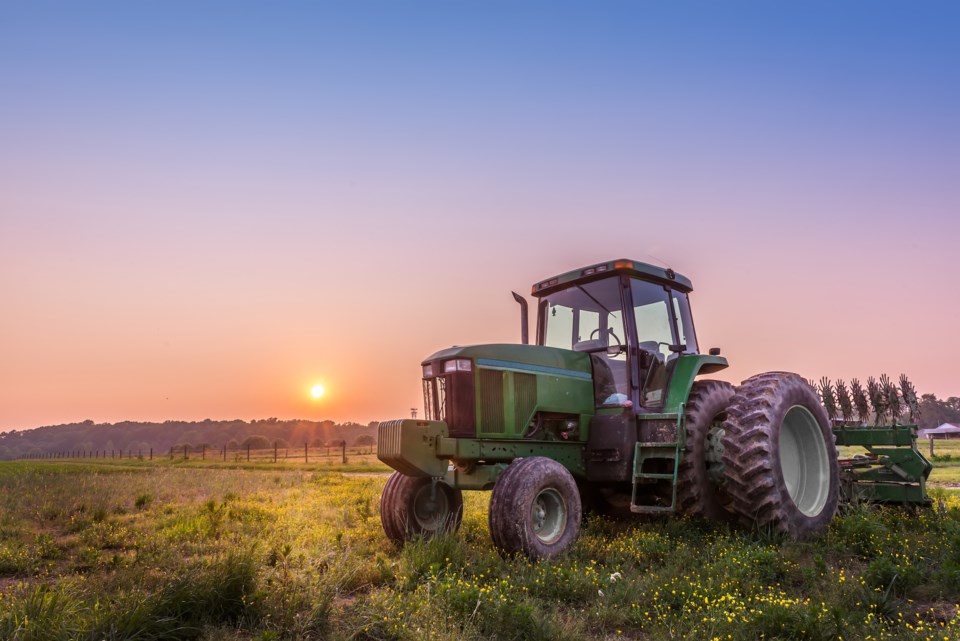Mark Reusser is the Director of the Ontario Federation of Agriculture:
It’s been almost five years since the first reports of a mysterious new illness affecting humans began circulating in the media. Those were the early days of COVID-19 and although the pandemic is now over, its impacts on everything from the economy to physical and mental health continue to be felt.
Collectively, the world learned some important lessons about pandemics and the importance of being prepared. The crisis illustrated, for example, the need to strengthen Canada’s ability to produce its own vaccines and personal protective equipment, and how vitally important strong domestic supply chains are to ensuring Canadians have a steady flow of essential goods.
There is a federal bill that is currently at second reading in the Senate that focuses on pandemic preparedness. Bill C-293: An Act respecting pandemic prevention and preparedness was first introduced as a private member’s bill in June 2022 by Liberal MP Nathaniel Erskine-Smith, and it is causing deep concern in the farming community because of its potential impacts on livestock agriculture should it become law without amendment.
I’m a farmer in Waterloo Region and in addition to being a director with the Ontario Federation of Agriculture (OFA), I’m also the OFA’s representative on the board of the Canadian Federation of Agriculture (CFA).
While the OFA has been following this legislation since it was first introduced, it’s the CFA that has been leading the response of the farming community to this bill, including meeting with Members of Parliament and Senators to outline our concerns.
Let me be clear: farmers are not opposed to pandemic preparedness. In fact, farmers are always on alert for diseases in our herds, flocks and crops. We take disease prevention seriously in all segments of our sector, from poultry and pigs to field and horticulture crops, through very specific practices we follow called biosecurity.
The concern with the bill stems from some of the sections proposing to regulate animal agriculture and phase out so-called high risk species, as well as promoting alternative proteins and suggesting antimicrobial resistance is solely a problem caused by livestock farming.
A section of the bill, for example, includes language promoting the production and use of alternative proteins, the regulation of “industrial” animal agriculture and the phasing out of high risk species, and the reduction of risks posed by antimicrobial resistance.
First of all, there are no definitions attached to such broad and generalized terms, which could easily be interpreted or used to lead to over-regulation or elimination of livestock farming. It also suggests that livestock farming in Canada has been the cause of pandemics, which is not the case.
Animal-based proteins like meat, poultry, fish, eggs and dairy are recognized as high quality protein sources that provide essential nutrients, vitamins and minerals in the human diet, and there is no evidence that they cause pandemics – nor that promoting proteins from alternative sources would reduce pandemic risk.
Antimicrobial resistance is a global concern for human and animal health, and we should be taking the One Health approach to addressing it. One Health recognizes that the health of people is closely connected to the health of animals and our shared environment and that effective solutions will focus on all three areas.
Antimicrobials play an important role in animal and human health, and overuse and misuse are a problem in both people and animals. For the livestock industry, antimicrobial stewardship has become a priority and we’ve taken significant steps in the past decade to dramatically lower use and ensure that when we do have to use these products, we do it in a more targeted and effective way.
To avoid unintended consequences for livestock farmers, we’ve been asking for removal of the section that promotes the production and use of alternative proteins, the regulation of animal agriculture, and the phase-out of high-risk species.
Along with this, the legislation should be amended to encourage continued support of existing animal health protection and antimicrobial reduction initiatives. As farmers and food producers, we’ve long been proactive on keeping livestock healthy and following a balanced, One Health approach will help us continue to produce food for people here at home and around the world.


